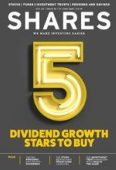Archived article
Please note that tax, investment, pension and ISA rules can change and the information and any views contained in this article may now be inaccurate.
Managers with large ‘skin in the game’ outperform those without it

When you invest in a fund or investment trust you are putting your hard-earned cash in the hands of a professional fund manager and asking them to make decisions on what to do with it.
Knowing that said professional has at least a portion of their own wealth tied up in the fund offers a level of confidence that they will weigh portfolio decisions carefully and with a long-term perspective because they have what is often called ‘skin in the game’.
THE MANAGERS WITH ‘SKIN IN THE GAME’
A new report from Investec notes that the aggregate investment by boards and managers of trusts is £4.79 billion, a seven-fold increase on the £687 million invested as of 2010.
The research also reveals there are 77 investment trusts where managers or the management team have a personal investment in their fund of £1 million or more as at close on 1 June 2021. Interestingly, SharePad data shows an average five-year share price total return of 77% for these trusts against 66.4% for trusts in general.
What could be the reason behind this performance differential? While in most cases managers will be working to the best of their ability to deliver returns for investors, the manager of a trust might only be in-situ for a few years and they therefore could be tempted to make decisions which boost performance in the short term.
However, managers with their own personal wealth tied up in their investment trust are likely to exercise more patience. Indeed, a patient approach to investing is typically a more rewarding one.
Skin in the game is no guarantee of success and investors should not invest in a product just because the managers have a material holding in it. However, at the very least there should be transparency so you can be fully informed and feed this into your ultimate decision on whether to invest or not.

A CHEF SHOULD EAT THEIR OWN COOKING
Terry Smith, chief executive and chief investment officer of asset manager Fundsmith, comments: ‘It is important fund managers have skin in the game to truly deliver alignment of interest with investors and disclosure of their stake should be mandatory. Who would trust a chef who wouldn’t eat his/her own cooking?’
Yet as Investec notes: ‘While investment companies are required to disclose transactions by board members, there is no such requirement for managers. Given strong investor demand for such information, this is disappointing.’
The accompanying table shows a selection of investment trusts where managers have invested their own money. The names include Fundsmith-run Smithson Investment Trust (SSON) and Fundsmith Emerging Equities (FEET) as well as Lindsell Train Investment Trust (LTI) and Scottish Mortgage (SMT). Private equity and hedge fund trusts also feature heavily on the list.
While it is useful for there to be alignment between the interests of shareholders and those charged with running their money, there is a danger if managers have too much control through a large personal holding that oversight and challenge to their decision-making is undermined.
Investec says: ‘There have been a number of companies where significant management stakes have given managers too much power, and in a number of cases, matters have been compounded by poor corporate governance.’
The wealth manager notes this could be at work in the case of Third Point Investors (TPOU) – a vehicle run by Wall Street luminary and activist investor Dan Loeb. He is part of a management team which owns more than £100 million worth of shares in the trust and holds 17% of the stock himself.
Third Point Investors has consistently traded at a wide discount to net asset value – 16.9% at present according to industry body the Association of Investment Companies.
Recent attempts to address this discount through buybacks and tender offers (invitations for investors to sell some or all of their holding back to the trust) have not had any significant impact.
Important information:
These articles are provided by Shares magazine which is published by AJ Bell Media, a part of AJ Bell. Shares is not written by AJ Bell.
Shares is provided for your general information and use and is not a personal recommendation to invest. It is not intended to be relied upon by you in making or not making any investment decisions. The investments referred to in these articles will not be suitable for all investors. If in doubt please seek appropriate independent financial advice.
Investors acting on the information in these articles do so at their own risk and AJ Bell Media and its staff do not accept liability for losses suffered by investors as a result of their investment decisions.
Issue contents
Case study
Great Ideas
- SkinBio Therapeutics' psoriasis supplement could be a real money spinner
- BlackRock Throgmorton shoots the lights out amid mid-cap momentum
- Change at the top to supercharge Brown Advisory US Smaller Companies
- Why Lindsell Train loves Diageo as much as we do
- Aurora Investment Trust moves into top gear thanks to value tailwind
- Inditex's sales and earnings growth defy the doubters
Investment Trusts
Money Matters
News
- Record job additions not sparking inflation fears yet
- Markets unmoved by lockdown easing delay
- Space the new frontier for investors as ETF and investment trust launch
- GlaxoSmithKline to spin-off £30 billion consumer healthcare arm in 2022
- Regulator tells companies to prioritise pensions over dividends

 magazine
magazine








